| Vita | Repertoire | Works | Contact | Home |
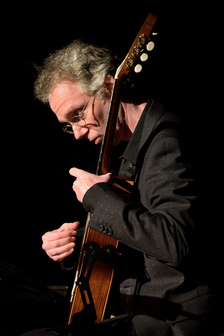 When I first put the initial version of this website
online many years ago, there was no question about presenting myself equally as a guitarist and a composer. Today, I am less
certain. Through my work as a faculty member in guitar at the University of Music Trossingen, where from 2006 to 2021 I taught
guitar as a major subject and offered the course “Contemporary Music for Guitar,” the balance of my activities shifted toward
the instrument. This direction had already begun to take shape through smaller teaching appointments at the Universities of
Music in Karlsruhe and Mannheim, while my own studies — music education in Karlsruhe, guitar in Vienna, followed by composition
in Karlsruhe and Basel — had still focused equally on both areas. The greater part of my compositions — solo pieces for various
instruments as well as vocal, chamber, choral, and orchestral music — was thus written during those early years. The guitar,
however, has remained my constant companion ever since.
When I first put the initial version of this website
online many years ago, there was no question about presenting myself equally as a guitarist and a composer. Today, I am less
certain. Through my work as a faculty member in guitar at the University of Music Trossingen, where from 2006 to 2021 I taught
guitar as a major subject and offered the course “Contemporary Music for Guitar,” the balance of my activities shifted toward
the instrument. This direction had already begun to take shape through smaller teaching appointments at the Universities of
Music in Karlsruhe and Mannheim, while my own studies — music education in Karlsruhe, guitar in Vienna, followed by composition
in Karlsruhe and Basel — had still focused equally on both areas. The greater part of my compositions — solo pieces for various
instruments as well as vocal, chamber, choral, and orchestral music — was thus written during those early years. The guitar,
however, has remained my constant companion ever since.
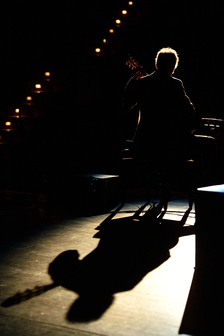 By performing not only as a soloist but also as a chamber
musician, I have been able to collaborate with many distinguished colleagues and orchestras at home and abroad, both in concert
and in the recording studio. One particularly rewarding experience was receiving second prize at the International Chamber Music
Competition in Schweinfurt in 2001, together with my partners, the Čiurlionis String Quartet from Vilnius, as the highest-placed
ensemble with guitar.
By performing not only as a soloist but also as a chamber
musician, I have been able to collaborate with many distinguished colleagues and orchestras at home and abroad, both in concert
and in the recording studio. One particularly rewarding experience was receiving second prize at the International Chamber Music
Competition in Schweinfurt in 2001, together with my partners, the Čiurlionis String Quartet from Vilnius, as the highest-placed
ensemble with guitar.
My lectures led me to undertake in-depth research into the guitar in the oeuvre of Hans Werner Henze. In the course of this work,
I was able to locate his earliest guitar composition, long thought lost, and premiere it in 2016. The resulting articles in various
specialist journals received international attention and led to invitations to lecture. Invitations of a similar kind also followed
from my work on instrumental technique, which was profoundly shaped by the Dutch physiotherapist Gerrit van de Klashorst, who specialized
in working with musicians. This work formed the basis of my 2020 book Gitarrentechnik meistern mit musikphysiologischem Wissen
(Mastering Guitar Technique through an Understanding of Musicians’ Physiology).
I continue to teach with great commitment, passing on what I have learned and worked on over many years — whether in lessons for
children and young people, or in advanced courses and workshops. I still very much enjoy performing, whether as a soloist or with
fellow musicians.
And perhaps, at some point, the time for composing will return.
 more detailed biographical information
more detailed biographical information
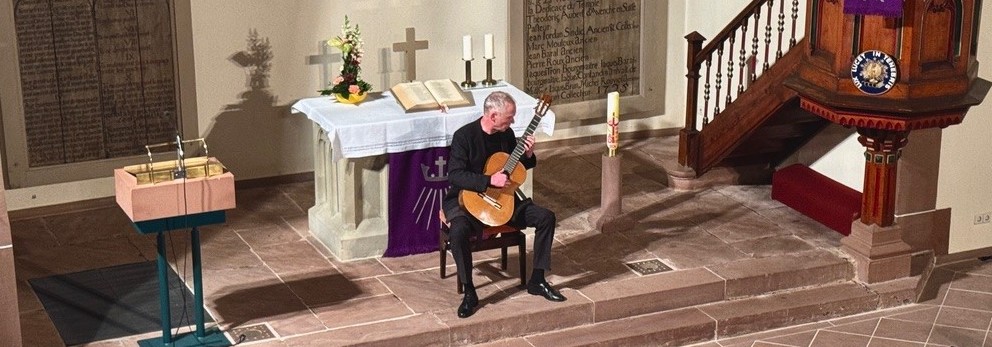
Press comments on my playing


From the first chords on, the audience sat in almost breathless silence. It was not virtuoso effects that produced such concentration, but the suggestive manner in which Andreas Grün brought out the musical figurations. Carefully and gently he shaped the individual motifs, created subtle transitions, cautiously built up the tension, and let it gently subside.
Pforzheimer Zeitung
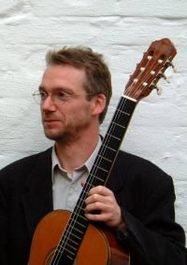 Andreas Grün knew how to draw colours from his instrument,
to trace the intricate interplay of lines with striking clarity, and, when required, to give virtuosity its due. What impressed most,
however, was his deeply musical, vividly breathing musicianship. The listener was never bored, even though a single guitar cannot
command a space as imperiously as a grand piano. Yet his playing was so rich in variety, so nuanced in dynamics, and so clear in its
sculptural definition that the tension was sustained from the first to the last note.
Andreas Grün knew how to draw colours from his instrument,
to trace the intricate interplay of lines with striking clarity, and, when required, to give virtuosity its due. What impressed most,
however, was his deeply musical, vividly breathing musicianship. The listener was never bored, even though a single guitar cannot
command a space as imperiously as a grand piano. Yet his playing was so rich in variety, so nuanced in dynamics, and so clear in its
sculptural definition that the tension was sustained from the first to the last note.
Südwest Presse
The Concerto in D minor for guitar, strings and basso continuo by Johann Friedrich Fasch was performed by Andreas Grün of Karlsruhe, who impressively revealed the fullness and beauty of the solo instrument’s tone; the second movement was a sheer delight. The technical challenges of the work were mastered with effortless ease.
Oberndorfer Zeitung
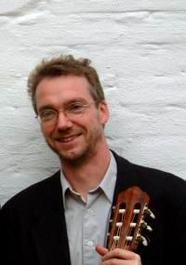 With his dazzling technique, A. Grün demonstrated a
staggering level of virtuosity.
With his dazzling technique, A. Grün demonstrated a
staggering level of virtuosity.
Vevey-Riviera
One should note the performer’s truly rare versatility and precision. It is doubtful whether one would find in Lithuania a classical guitarist of comparable calibre.
Durys, Klaipėda
A perfect recording! … These works could scarcely be played more convincingly. … The guitarist is immediately recognizable as a great and sensitive artist. He plays with a refined sense of beauty and a keen instinct for musical nuance.
Das Orchester
further reviews
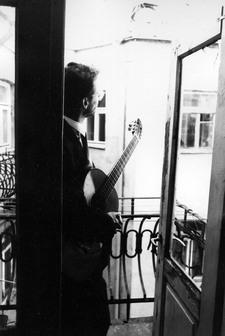 Andreas Grün takes the stage with an air of calm assurance — relaxed, yet
never careless; focused, yet never tense. This is already evident in the remarkable subtlety of his touch: sensitive fingers that
seem scarcely to brush the strings, yet draw from the warmly resonant instrument a maximum of nuance. Added to this is a left-hand
technique of astonishing virtuosity.
Andreas Grün takes the stage with an air of calm assurance — relaxed, yet
never careless; focused, yet never tense. This is already evident in the remarkable subtlety of his touch: sensitive fingers that
seem scarcely to brush the strings, yet draw from the warmly resonant instrument a maximum of nuance. Added to this is a left-hand
technique of astonishing virtuosity.
Just how astonishing became clear at the very outset, in his interpretation of Johann Sebastian Bach’s Lute Suite in G minor (BWV 995):
a sequence of seven dance movements filled with demanding chords and intricate harmonic progressions, as well as trills and turns.
Grün not only structured the work with lucid logic, but also infused it with almost Romantic shades of mood.
From Bach, Andreas Grün stepped back two centuries into the Renaissance to pay homage to one of the great composers and virtuosos
of his instrument, the Italian Francesco da Milano. He did so with a vibrant — and correspondingly sculpted — sequence of ricercari
and fantasias.
The seasoned concert guitarist and sensitive musician was revealed in Grün’s interpretation of the Suite op. 164 by the Viennese
composer Ernst Krenek: a complex work full of subtle contrasts, incorporating elements of jazz and the twelve-tone system, even
as its harmonies repeatedly suggest classical structures. This reading displayed not only the intellect of the trained musicologist,
but above all the soul of the artist — whose intuitive understanding made Krenek’s music tangible even to the uninitiated listener.
Südwest Presse
This performer did not astonish the audience with bravura passages or especially rapid tempi, but offered profound pleasure through thoughtfully shaped phrasing, logical dynamics, and a keen sense of musical form and style. The guitarist’s performance can be summed up in two epithets — cultivated artistry and academic refinement.
Lietuvos Rytas
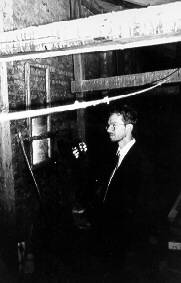 Andreas Grün impressed his audience with the soft yet
remarkably clear tone of his guitar. In the precise articulation of the individual voices, the soloist left nothing to be desired.
Andreas Grün impressed his audience with the soft yet
remarkably clear tone of his guitar. In the precise articulation of the individual voices, the soloist left nothing to be desired.
Pforzheimer Zeitung
In this respect, Andreas Grün proved to be the ideal partner: he exercised all the necessary restraint, yet at the same time brought out the full range of the guitar’s expressive possibilities, contributing a wealth of color and subtle effects. He most aptly complemented the flute’s limited register, as though he had taken up and continued its impulses. The result was a finely balanced chamber-music partnership
Freudenstädter Kreiszeitung
Andreas Grün demonstrated a quality rare among guitarists: the ability to play with absolute rhythmic precision and to suppress completely the extraneous noises so often heard. At the same time, his tone remained present and richly satisfying in timbre. The ensemble playing of the two artists was marked by an effortless unanimity, even in the most difficult tempi and rhythms and in every nuance, including the most subtly implied modifications. … Thus the two musicians — performing without any trace of star affectation yet at the highest artistic level — blended in their playing as if cast from a single mould, creating music of youthful vitality that, in its unaffected simplicity, its commitment and the sincerity of its expression, carried the audience to prolonged applause.
Südwest Presse
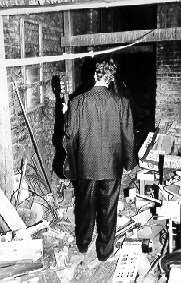 Under the motto Zeitenwende – Wendezeiten (“Turning
of the Times — Times of Turning”), the Karlsruhe guitarist and composer Andreas Grün juxtaposed works of German Romanticism with
compositions of the immediate present in his recital. The result was an evening whose intelligent program dramaturgy opened up unexpected
perspectives and, above all, offered food for thought — it was exciting to experience how “old” and “new” illuminated one another,
revealing unexpected and almost secret connections across different periods and styles.
Under the motto Zeitenwende – Wendezeiten (“Turning
of the Times — Times of Turning”), the Karlsruhe guitarist and composer Andreas Grün juxtaposed works of German Romanticism with
compositions of the immediate present in his recital. The result was an evening whose intelligent program dramaturgy opened up unexpected
perspectives and, above all, offered food for thought — it was exciting to experience how “old” and “new” illuminated one another,
revealing unexpected and almost secret connections across different periods and styles.
Heinrich Marschner’s Zwölf Bagatellen, op. 4, divided into three sections, ran like a red thread through the entire program.
From these often underestimated pieces — in the strict sense the only genuinely Romantic compositions for solo guitar — to which
Andreas Grün lent an astonishing richness of color and nuance, the remaining works of the evening, all composed in the 1990s, differed
in a variety of ways. The recurring reference to Marschner naturally suggested the intriguing question of whether “Romantic” elements
might still hold significance in contemporary composition.
The Karlsruhe composer Stephan Marc Schneider offered a distinctly affirmative and sonority-centered response with his piece Je suis
encore un chêne, whose title alludes to Jean Anouilh’s interpretation of one of La Fontaine’s fables. (Even a cursory glance at the
score confirms this, with performance indications such as “mit Stolz und Schmerz” [with pride and pain], “verlöschend” [fading away], or
“Melodie aus der Ferne, sehr dünn und zart” [melody from afar, very thin and delicate].) Andreas Grün’s interpretation — particularly in
the central section, which contained moments of rare enchantment — brought this expressive and gestural character of the music vividly
to the fore, making clear that looking back need not mean regression.
The true center of the program, however, was a composition by Andreas Grün himself, whose title (Die Hölderlin-Vertonungen des Josquin
Desprez — The Hölderlin Settings of Josquin Desprez) encapsulated the evening’s motto — the interpenetration of different eras —
with gentle irony. (Josquin died in 1521, almost exactly 250 years before Hölderlin’s birth.) The movements, consistently extremely slow
and reduced to the simplest melodic gestures, unfolded from the initial monophony into an increasingly dense polyphonic network. Their
inward circling and uniformity of motion generated a sonic magic whose gravitational pull entered into a remarkable dialogue with the works
of art by Armin Goeck displayed in the exhibition space. The program concluded with Detlev Glanert’s 1994 composition Paralipomena —
Seven Pieces for Guitar on a Tale by Novalis, which carried the reference to the overarching theme already in its title and added a
further Romantic dimension to the evening — that of outward virtuosity.
Neureuter Nachrichten
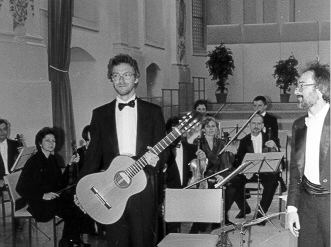
Press comments on my compositions

The undisputed highlight was a “symphonie fantastique en miniature,” as Frank Michael described his colleague Andreas Grün’s composition. His Capriccio on mi-chae-la became an exciting acoustic evocation of chaos theory.
Marburger Neue Zeitung
Perhaps the evening’s most impressive work was Andreas Grün’s String Trio Schatten — Spuren — Splitter (“Shadows — Traces — Splinters”), composed “for dreamers’ ears.”
Badische Neueste Nachrichten
Trakl foreshadowed the morbid spirit of his time, and, filled with a longing for death, gave bold expression to his nocturnal visions. Grün’s settings are wholly in keeping with this spirit, full of dark beauty and a pallid glow. There is no bluster, no stuttering, no empty affectation, but singing of haunting and oppressive beauty.
Pforzheimer Zeitung
The striking and highly compelling Piano Trio No 1 by Andreas Grün made a powerful impression, its hammering bass lines in the outer movements lending it a gripping intensity.
Badische Neueste Nachrichten
Further reviews of the compositions are available on the Works page via the respective
 more information links.
more information links.
 |
 |
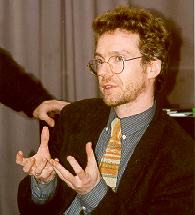 |
 |
Repertoire | Works | Contact | Home |